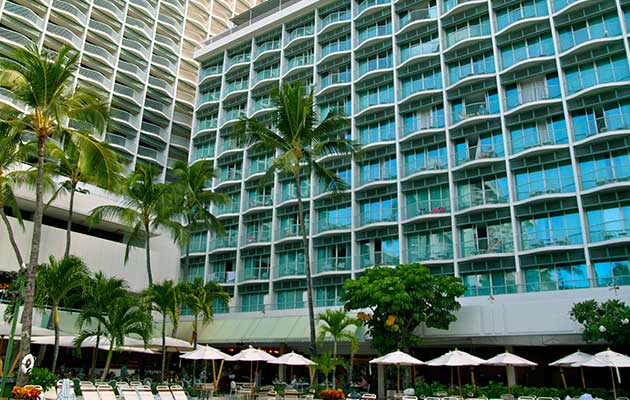-
Articles
Execution of an Administrative Order Demanding Payment of Money
The legal enforcement measures on the type of sanctions imposed for breach of public law were changed in Thailand recently, i.e. from a criminal penalty, which caused the offender to have a criminal record - to an administrative order demanding payment of an administrative fine or an administrative order demanding action or omission to act which the person who is the subject of the order will be further subject to the execution fine if fails to comply with such order.
This article will outline the administrative order demanding payment of money under the Administrative Procedure Act B.E. 2539 (1996) and its amendment (“APL”), as well as the administrative execution procedures to enforce payment of said administrative order. The amendment of Chapter 2/1 (the Administrative Execution) of the APL by the Administrative Procedure Act (No. 3) B.E. 2562 (2019), which was published in the Government Gazette on 27 May 2019 and came into effect on 28 May 2019, provides two execution measures for the efficient enforcement of an administrative order demanding payment of money. If the provision of law under which the administrative order is issued provides for specific administrative execution measures that can be less effective than the measures under the APL; the relevant State agency can apply the administrative execution measures under the APL.
Administrative order demanding payment of money refers to an administrative order made by the competent official who has the authority to make such order under the law which the order is made; demanding a person to pay money to the relevant State agency, such as tax and duty, administrative fine, execution fine, surplus, compensation or any monetary obligations which are subject to be paid under the administrative enforcement measures.
Measures for execution of an administrative order demanding payment of money under the APL
There are two alternative administrative measures for the execution of an administrative order demanding payment of money, provided that such order has not been filed with the court for enforcement and ruled upon in a judgement ordering the payment of money.
Execution conducted by the execution officials. Pursuant to Sections 63/15 to 63/19 of the APL, the State agency that issued the administrative order demanding payment of money which is final, regardless of whether or not the order has been executed by such State agency themselves, may submit a unilateral petition to a civil court with jurisdiction over the property to be executed. If the court finds the order to be final, it shall grant a writ of execution and an order appointing the Legal Execution Department to be the execution official; and such State agency will be deemed a judgement creditor.
Execution conducted by the State agency that issued such order. Pursuant to Sections 63/1 to 63/14 of the APL, the State agency that issued the administrative order demanding payment of money can implement the administrative execution to enforce the collection of money by themselves if the demanded payment becomes due and the payment has still not been fully paid in compliance with a further written warning requiring payment within a specified period of not less than seven days; otherwise, the official will have the power to implement the administrative execution by seizing or attaching properties of such person and sell them at auction. For implementation of this measure, the order is not required to be final and it may be in the process of administrative appeal or court proceedings against the validity or correctness of such order; unless a stay of execution is ordered by the official who made the administrative order demanding payment of money, the person with the power to consider an appeal or the person with the power to consider and decide correctness of such order.
On 22 April 2022, the Ministerial Regulation prescribing processes and procedures in connection with the seizure, attachment and sale of property at auction and the court’s powers in respect of the execution is vested in the chief of State agency, B.E. 2565 (2022), issued by virtue of Section 63/12 of the APL, was published in the Government Gazette; thus allowing the State agency issuing the order to carry out the seizure, attachment and sale of property at auction itself, without having to obtain any court orders beforehand.
The prescription period for execution of payment under the administrative order demanding payment of money
The time limit for seizure or attachment of property in the course of execution of an administrative order demanding payment of money is 10 years from the date upon said administrative order becomes final.
The administrative order demanding payment of money is not a criminal penalty; therefore, the execution will not be extinguished because of the death of an individual who is the subject of the order nor because of the dissolution, transfer or merger of juristic entity which is the subject of the order. The execution measure will be notified to the heir, administrator of estate, liquidator or the juristic person acquiring the business, as the case may be.
Appeal against the administrative order demanding payment of money and the application of administrative execution measures
The person subject to an administrative order demanding payment of money or an administrative execution measure may appeal against such order or such execution measure within the period for appeal, which varies depending on the law governing such order.
This is intended merely to provide a regulatory overview and not to be comprehensive, nor to provide legal advice. Should you have any questions on this or on other areas of law, please do not hesitate to contact:
Nuttaros Tangprasitti
Partner
Malinee Kriengkrailipikorn
Attorney-at-Law









Nuttaros Tangprasitti specialises in corporate and commercial law. She regularly assists both international and domestic corporate clients (limited liability companies and partnerships, stock corporation in several industries) on the relevant laws of Thailand, which includes foreign direct investment, legal due diligence, M&A and cross-border M&A, joint venture, compliance, banking and finance. In addition to supporting clients on the above and a multitude of different legal formalities, she also has expertise in advising on various investment promotion policies of the Board of Investment (BOI), as well as compliance with foreign business, other laws on salient points for shareholders and joint venture agreements, which includes laws on immigration and foreign work under Thai law. Nuttaros speaks at many seminars and takes an active role in educating the clients on issues relevant to their businesses and her practice areas. She also writes various articles and newsletters on cutting-edge topics in several legal areas, which are widely distributed to existing and potential clients. Nuttaros aims to ensure the lawyers on her team are constantly developing and upgrading their skills, to ensure they meet or exceed the high professional standards of Nishimura & Asahi. She is committed to ensuring that both she and our firm deliver top-quality services to our clients and strong internal support for our colleagues. She recently began drafting a manual on several aspects of Thai law, as part of an “Investment promotion scheme,” and also wrote several newsletters on corporate law, and banking and finance laws. She also recently authored an article on the impact of Tax Reduction for Land and Buildings, which received excellent feedback from our clients, particularly those who are land and building owners. Nuttaros is committed to building a strong and progressive corporate and commercial practice, which also incorporates tax law, by adapting to new ideas in the legal industry.